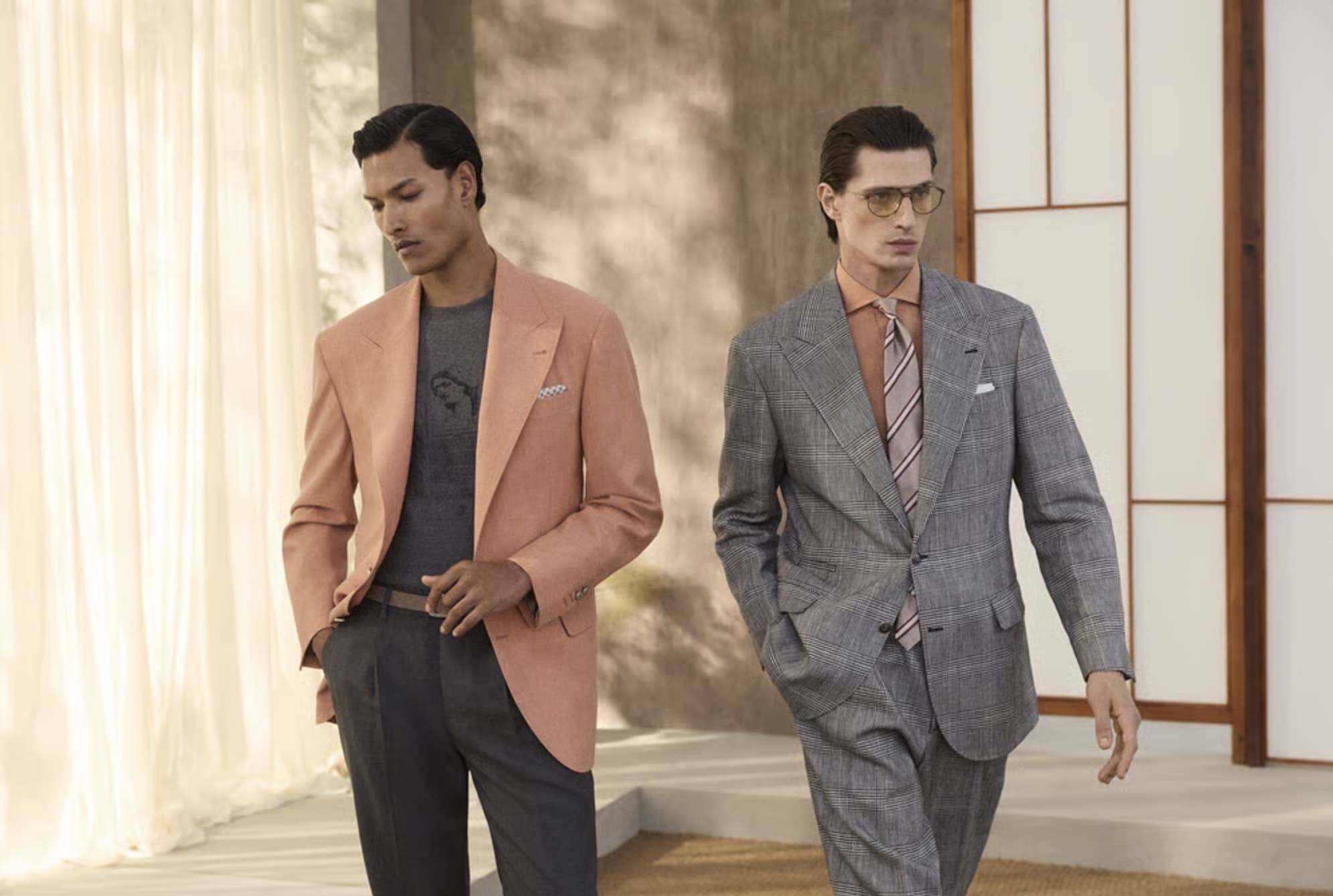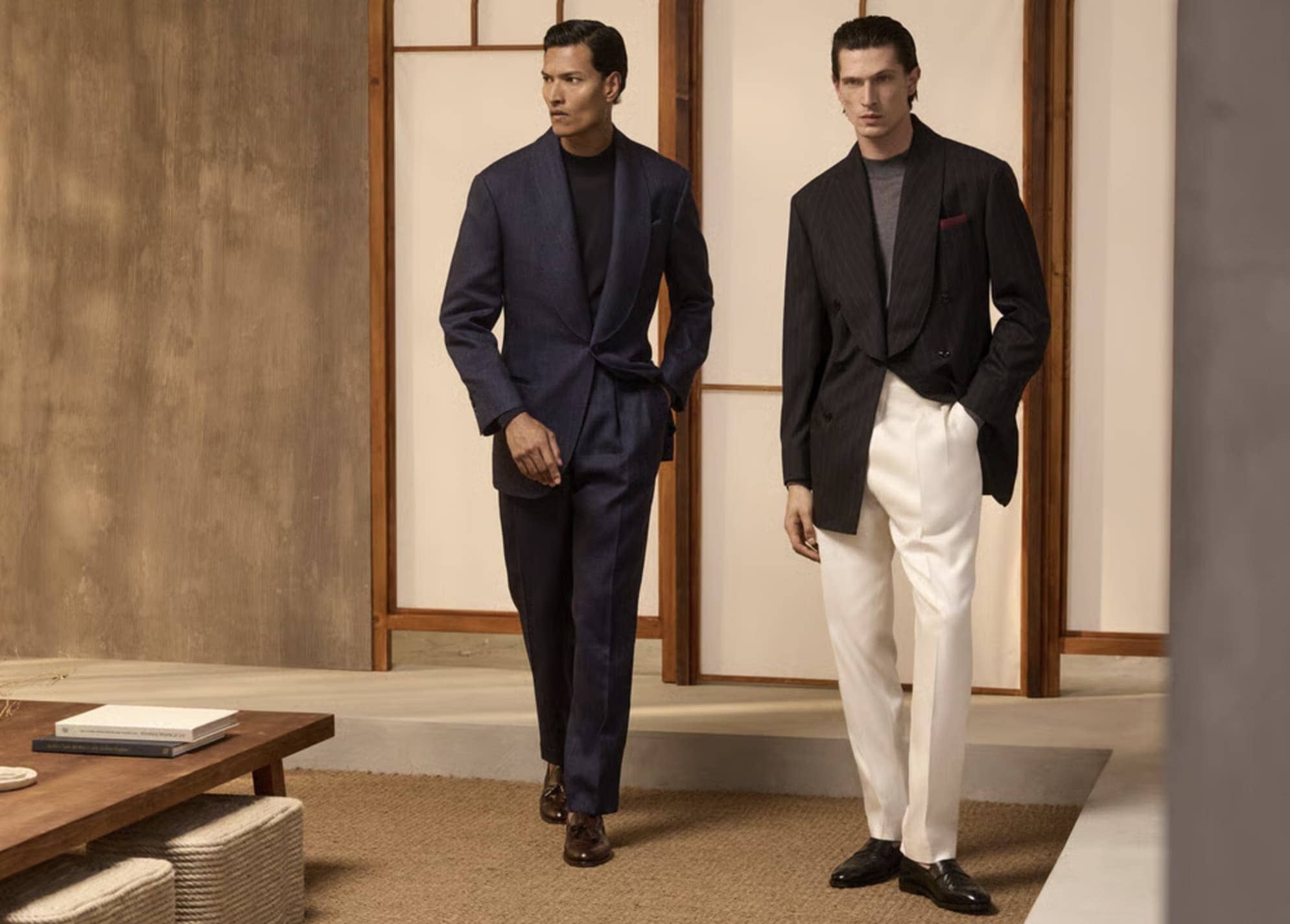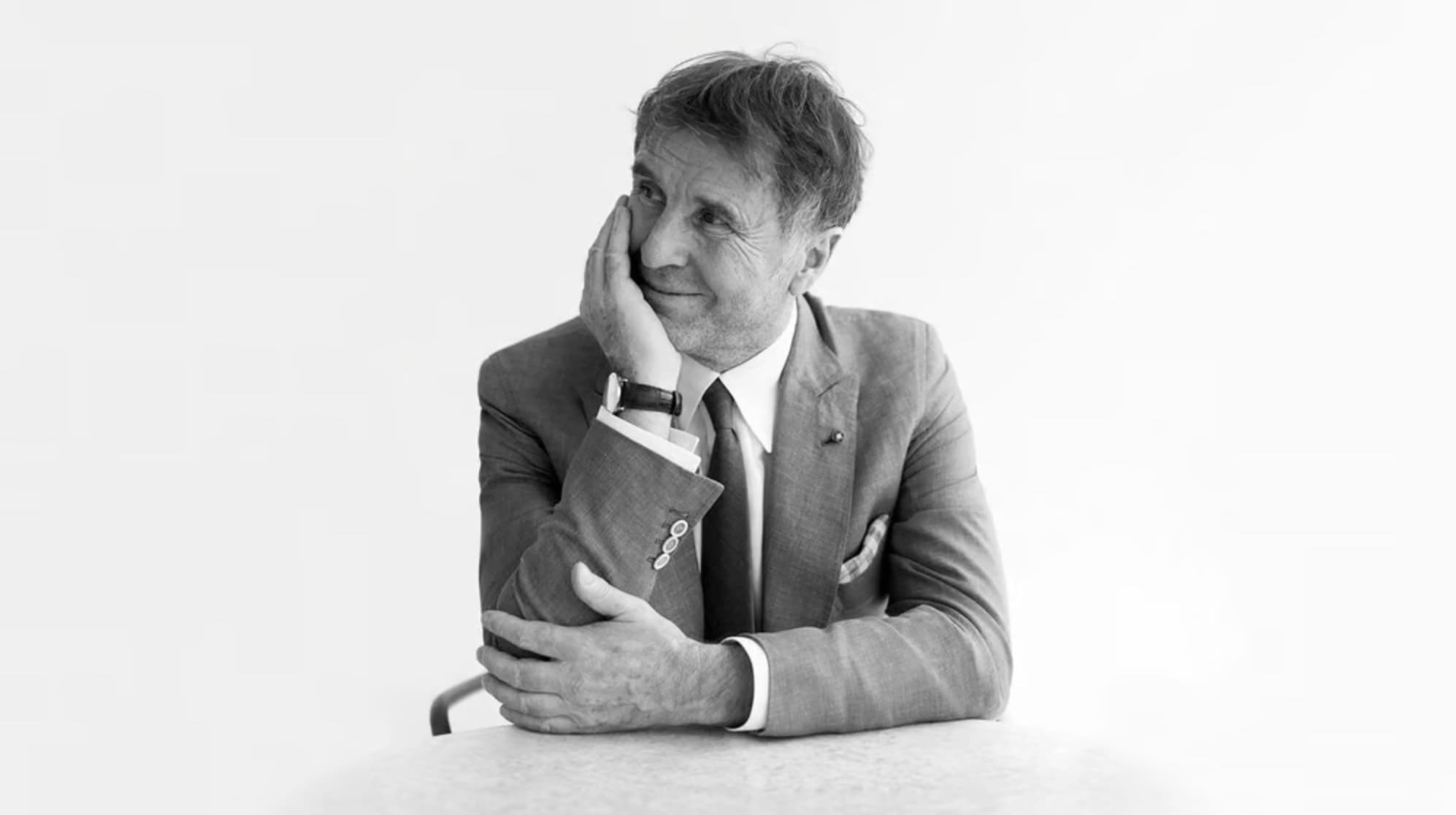A feature film on the Italian designer-philosopher is in development, signaling a growing appetite for narratives that humanize luxury
Italian fashion house Brunello Cucinelli will soon be the subject of a major motion picture, with the designer’s life and philosophy-driven career set to be adapted for cinema. The project, currently in development with filmmaker and Oscar winner Giuseppe Tornatore, was announced this week and positions Cucinelli not only as a designer but as a cultural figure whose ideals of “humanistic capitalism” may resonate far beyond fashion. As the industry increasingly turns to biographical storytelling to communicate brand values, the film reflects a wider shift: legacy-building is no longer an afterthought just about the longevity of the product, but an initiative deriving from the person and principles behind it.
The film will chronicle Cucinelli’s rise from humble beginnings in rural Umbria to the helm of a global luxury brand known for its quietly powerful aesthetic and ethical business model. While casting and release dates have yet to be confirmed, the screenplay will reportedly center on themes long associated with the designer: dignity in work, spiritual connection to place, and the belief that business can and should elevate humanity. This cinematic treatment marks a natural extension of the Cucinelli brand, which has carefully cultivated its image around craftsmanship, cultural stewardship, and a distinctly non-commercial form of luxury.
That a film is being made at all is indicative of the changing ways fashion brands seek to establish permanence in the public consciousness. Rather than documentary-style retrospectives or trend-led campaigns, Cucinelli’s story is being positioned as a modern fable. One that underscores values increasingly in demand among consumers disillusioned with fast fashion and corporate opacity. The involvement of composer Nicola Piovani, another Italian Oscar winner for “Life Is Beautiful” in 1997, suggests a cinematic tone that will lean into philosophical reflection as much as biographical recounting.
Strategically, the timing aligns with the brand’s continued financial resilience and growing global presence. Brunello Cucinelli reported a double-digit growth in the Retail channel in Q1 2025, a particularly meaningful result as it was consistent across all geographies. With the film poised to introduce the designer’s ethos to wider audiences, it could function as both a cultural artifact and a brand amplifier, reaching consumers less through product visibility and more through narrative immersion. For a brand that has long resisted traditional marketing formulas, cinema offers a compelling, non-linear platform for deepening emotional resonance.
As fashion’s future becomes increasingly bound to storytelling, the Brunello Cucinelli biopic represents more than a portrait of one man’s life; it marks a strategic evolution in how legacy brands articulate identity. Positioned at the intersection of ethics, aesthetics, and enduring relevance, the film offers a narrative that is as much about values as it is about fashion, that suggests a future where luxury is defined not by logos, but by lived philosophy.


